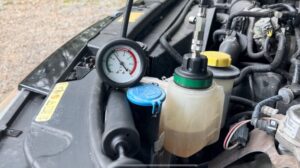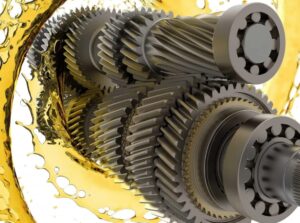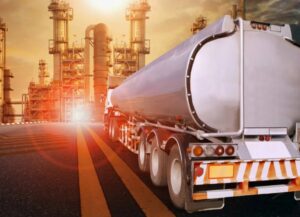Exploring group 5 base oil: An overview
What is group 5 base oil?
Different types of base oil
Base oils are classified into different groups based on their chemical structure and physical properties. Group I base oils are petroleum-based oils refined from crude oil, while Group II and III base oils are refined from vacuum gas oil. Group IV base oils are polyalphaolefins (PAO) and polyalkylene glycols (PAG), which are synthetic oils. Group V base oils include a variety of other synthetic and semi-synthetic oils. Understanding the different types of base oils is crucial for selecting the right one for a specific application.
Group I base oils are typically used in general-purpose lubricants, such as motor oils and hydraulic fluids. Group II base oils are used in high-performance lubricants, such as transmission fluids and brake fluids. Group III base oils are used in specialized lubricants, such as turbine oils and gear lubricants. Group IV base oils are used in high-performance applications, such as aerospace lubricants and industrial fluids. Group V base oils are used in a wide range of applications, including industrial fluids, greases, and specialty products.
Group 5 base oil & Base oil catalyst: Production processes of the base oil
5 Base oil production process involves several steps, including crude oil refining, vacuum distillation, hydrotreating, and hydrocracking. The crude oil is first refined to remove impurities and heavy metals. The resulting product is then vacuum distilled to separate the different fractions based on their boiling points. The resulting fractions are then hydrotreated to remove sulfur and nitrogen impurities. Finally, the hydrocracking process breaks down the complex molecules into simpler ones, resulting in a high-quality base oil.
The production process of base oil group 5 requires careful control of temperature, pressure, and catalysts to ensure that the desired properties are achieved. The hydrocracking process can be performed at temperatures ranging from 300°C to 400°C, depending on the specific requirements of the product being produced. The catalyst used in the hydrocracking process is typically a zeolite-based catalyst or a metal-based catalyst.
Group 5 base oil: Performance
Group 5 base oils have excellent performance characteristics, including high viscosity index, low volatility, and high thermal stability. They also have good corrosion protection properties and are resistant to wear and tear. These properties make them ideal for use in high-performance applications such as aerospace lubricants, automotive lubricants, and industrial fluids.
The performance characteristics of group 5 base oils can be attributed to their unique molecular structure. They have a high percentage of aromatic molecules, which provides them with good thermal stability and resistance to oxidation. They also have a low percentage of sulfur-containing molecules, which reduces their tendency to form sulfur-containing compounds that can cause corrosion.
Characteristics and Applications
Base oil catalysts 5 have several characteristics that make them suitable for various applications. They have a low viscosity index, which means they remain stable over a wide temperature range. They also have good corrosion protection properties and are resistant to wear and tear. These characteristics make them ideal for use in applications where high temperature stability and corrosion protection are critical.
Group 5 oil are commonly used in applications such as engine oils, gear lubricants, industrial fluids, and greases. They are also used in the production of synthetic lubricants and other specialty products. Their excellent thermal stability makes them suitable for use in high-temperature applications such as aerospace lubricants and industrial fluids.
Advantages and Common Uses

The advantages of group 5 base oils include their high performance characteristics, excellent chemical stability, and good environmental profile. They are commonly used in applications such as engine oils, gear lubricants, industrial fluids, and greases. They are also used in the production of synthetic lubricants and other specialty products.
Some common uses of group 5 base oils include:
- Engine oils: Group 5 base oils are used in engine oils due to their excellent thermal stability and corrosion protection properties.
- Gear lubricants: Group 5 base oils are used in gear lubricants due to their good low-temperature flowability and resistance to wear and tear.
- Industrial fluids: Group 5 base oils are used in industrial fluids due to their excellent thermal stability and corrosion protection properties.
- Greases: Group 5 base oils are used in greases due to their good corrosion protection properties and resistance to wear and tear.
Superior Performance and Applications
- Aerospace lubricants: Group 5 base oils are used in aerospace lubricants due to their excellent thermal stability and corrosion protection properties.
- Automotive lubricants: Group 5 base oils are used in automotive lubricants due to their good low-temperature flowability and resistance to wear and tear.
- Industrial fluids: Group 5 base oils are used in industrial fluids due to their excellent thermal stability and corrosion protection properties.
- Greases: Group 5 base oils are used in greases due to their good corrosion protection properties and resistance to wear and tear.
Group 5 base oil: Diverse and Specialized
Group 5 base oils are used in a wide range of applications due to their diverse characteristics. They can be blended with other additives to create specialized products with unique properties. They can also be formulated into various types of products such as synthetic lubricants, greases, and industrial fluids.
Some examples of specialized products made from group 5 base oils include:
- Synthetic lubricants: Group 5 base oils can be blended with other additives to create synthetic lubricants with unique properties.
- Greases: Group 5 base oils can be formulated into greases with specific properties such as corrosion protection or extreme pressure resistance.
- Industrial fluids: Group 5 base oils can be blended with other additives to create industrial fluids with specific properties such as thermal stability or corrosion protection.
What you need to know about base oils in lubricants
- Operating temperature range
- Load capacity requirements
- Environmental considerations
- Performance characteristics required by the application
Why the type of base oil you have in a lubricant matters
The type of base oil used in a lubricant can significantly impact its performance characteristics. Different types of base oils have different properties that can affect the lubricant’s viscosity index, corrosion protection properties, wear resistance, and thermal stability.
Some examples of how different types of base oils can affect a lubricant’s performance include:
- A petroleum-based lube may have poor cold-start performance compared to an synthetic lube.
- A petroleum-based lube may not provide adequate corrosion protection compared to an additive-treated lube.
- A synthetic lube may provide better wear resistance compared to an additive-treated lube.
By understanding how different types of base oils affect performance characteristics, you can make informed decisions when selecting a lubricant for your application.
How to Choose the Right Base Oil for Your Application
When choosing a lubricant for your application, it’s essential to consider several factors including operating temperature range, load capacity requirements, environmental considerations, and performance characteristics required by the application.
Some steps you can take when selecting a lubricant include:
- Identify your application’s requirements
- Determine the operating temperature range
- Consider environmental factors
- Evaluate performance characteristics required by the application
- Research different types of bas
- Consider the type of equipment or machinery being used
- Research different types of base oils and their properties
- Evaluate the pros and cons of each type of base oil
- Consult with experts or industry professionals
- Test and evaluate different lubricants
The Future of Base Oils
The future of base oils is evolving, with new technologies and innovations being developed to improve their performance and sustainability. Some trends that are expected to shape the future of base oils include:
- Increased focus on sustainability and environmental responsibility
- Development of new, eco-friendly base oil technologies
- Improved performance characteristics, such as higher viscosity indexes and better thermal stability
- Increased use of recycled and re-refined base oils
- Development of new applications for base oils, such as in biodegradable lubricants
As the demand for sustainable and high-performance lubricants continues to grow, it’s likely that the industry will see significant advancements in base oil technology.
Conclusion: Navigating the World of group 5 base oil
Base oils play a critical role in the production of lubricants, and understanding their properties and characteristics is essential for selecting the right lubricant for your application. Whether you’re looking for a petroleum-based or synthetic lubricant, there’s a base oil out there that can meet your needs. By considering factors such as operating temperature range, load capacity requirements, environmental considerations, and performance characteristics required by the application, you can make an informed decision when selecting a lubricant. With new technologies and innovations on the horizon, the future of base oils is exciting and full of possibilities.
FAQs

Radiator Stop Leak UAE: Quick Fix for Vehicle Cooling System Leaks
Radiator Stop Leak UAE: Quick Fix for Vehicle Cooling System Leaks Discover More Introduction: The Unforgiving UAE Climate and Your Vehicle’s Lifeline The United Arab Emirates’ automotive landscape is defined by extremes. Ambient temperatures that regularly surpass 45°C (113°F), coupled with intense urban congestion and long, high-speed desert drives, create a perfect storm of thermal stress for every vehicle. In this environment, your engine cooling system is not merely a subsystem; it is the single most critical component preventing catastrophic engine failure.

What Type of Transmission Oil in UAE Does My Car Need? Your Complete Guide
What Type of Transmission Oil in UAE Does My Car Need? Your Complete Guide Discover More Navigating the vast, sun-baked highways of the United Arab Emirates—from the dynamic urban sprawls of Dubai and Abu Dhabi to the majestic desert dunes and the tranquil mountain passes of the Hajar range—places extraordinary mechanical and thermal stress on every component of your vehicle. While conscientious drivers often prioritize engine oil changes, the vital lifeblood safeguarding the transmission, the complex heart of your car’s

Guide to UAE Turbine Oil Selection Application & Management for Industrial Facilities
Guide to UAE Turbine Oil Selection, Application, and Management for Industrial Facilities Discover More In the hyper-competitive industrial landscape of the United Arab Emirates, where operational excellence directly translates to economic advantage, turbine lubrication represents a critical nexus of reliability engineering and strategic asset management. This comprehensive guide, developed with technical insights from Rumanza Lubricants, provides an unprecedented deep dive into the science, selection criteria, and life-cycle management of turbine oils specifically engineered for the extreme operating conditions of the

Synthetic vs. Mineral Hydraulic Oil in UAE : Which is Best for Your Operation?
Synthetic vs. Mineral Hydraulic Oil in UAE : Which is Best for Your Operation? Discover More Across the dynamic landscape of the United Arab Emirates—from the megaprojects of Dubai Marina to the intricate conveyor systems of Jebel Ali Port, from the massive hydraulic shovels in Al Dhafra quarries to the precision automated lines in Abu Dhabi’s industrial cities—the silent, powerful force of hydraulics is indispensable. These systems convert fluid power into monumental force and precise motion. At the core of

What is a Pour Point Depressant? | Benefits, Uses & How It Works Mechanism
What is a Pour Point Depressant? | Benefits, Uses & How It Works Mechanism Discover More In the intricate world of lubricant formulation, few additives play as critical yet understated a role in cold-weather operability as Pour Point Depressants (PPDs). These specialized chemical compounds are the linchpin that prevents machinery from seizing up when temperatures plummet. This in-depth guide goes beyond the basics, exploring the sophisticated chemistry, detailed mechanism, nuanced benefits, and practical considerations of PPDs. We will also examine the

Guide to Gasoline Engine Oils for UAE’s Extreme Climate: Engineering Peak Performance
Gasoline Engine Oils for UAE’s Extreme Climate: Engineering Peak Performance Discover More In the heart of the Arabian Peninsula, the United Arab Emirates stands as a testament to human ambition, with its engineering marvels and endless highways. Yet, this environment of soaring achievement is also one of the most punishing on Earth for machinery. For your vehicle—whether a nimble city sedan, a powerful family SUV, or a high-performance sports car—the UAE’s climate is a relentless adversary. The choice of engine

What are Polyol Ester Oils & Lubricants – Properties & Applications
What are Polyol Ester Oils & Lubricants – Properties & Applications Discover More In the intricate world of industrial machinery, automotive engines, and advanced refrigeration systems, the choice of lubricant is not merely a maintenance task—it’s a critical engineering decision. While conventional mineral oils have served us for over a century, the demands of modern technology require fluids that can perform under extreme pressure, temperature, and environmental stress. This is where synthetic lubricants, specifically Polyol Ester oils, come to the forefront.

Guide to Choosing the Right Lithium Complex Grease in UAE
Guide to Choosing the Right Lithium Complex Grease in UAE for Unbeatable Performance Discover More In the heart of a region defined by its ambition and extreme climate, the machinery that builds and powers the UAE operates under immense pressure. From the towering cranes sculpting Dubai’s skyline to the massive haul trucks in Abu Dhabi’s industrial zones and the relentless conveyor systems in Jebel Ali Port, every moving part is a critical link in the chain of progress. Protecting these